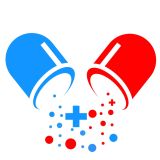In this article:
What is a Doctor of Pharmacy Degree?
A Doctor of Pharmacy (PharmD) degree is the professional degree required to become a licensed pharmacist. It prepares students to understand how medications work in the body, how to dispense them safely, and how to advise patients and healthcare providers on proper medication use. The PharmD focuses on both the science behind drugs and the patient care skills needed to help people use them effectively.
This degree combines classroom learning with hands-on experience. Students study subjects like pharmacology, chemistry, anatomy, and physiology, along with courses in law, ethics, and communication. They also complete supervised clinical rotations in hospitals, community pharmacies, and other healthcare settings, where they gain real-world experience working with patients and healthcare teams.
Program Options
Students interested in becoming pharmacists or working in the field of pharmacy can pursue several educational pathways that lead to a Doctor of Pharmacy degree or related careers. Here are the main program options available:
- Pre-Pharmacy Program: This is typically a two-year undergraduate track that covers prerequisite science and math courses needed for admission into a PharmD program. Some students may also pursue a full bachelor’s degree before applying.
- Doctor of Pharmacy (PharmD): This is the professional degree required to become a licensed pharmacist. It usually takes four years to complete after pre-pharmacy coursework and includes both academic study and clinical experience.
- Dual Degree Programs (e.g., PharmD/MBA, PharmD/MPH): These programs allow students to earn a PharmD alongside another graduate degree, such as a Master of Business Administration or Master of Public Health, which can expand career options in healthcare leadership, policy, or administration.
Skills You’ll Learn
A Doctor of Pharmacy degree equips students with a range of essential skills necessary for their roles as pharmacists. Here are some key skills learned:
- Pharmacological Knowledge: Students gain a deep understanding of drug actions, side effects, interactions, and therapeutic uses.
- Prescription Interpretation and Dispensing: Training includes accurately reading, verifying, and preparing prescriptions to ensure safe and effective medication use.
- Patient Counseling: Students learn how to communicate with patients about proper medication use, potential side effects, and the importance of adherence.
- Clinical Decision-Making: The program develops critical thinking skills needed to assess patient conditions and recommend appropriate pharmaceutical therapies.
- Medication Safety and Regulation: Emphasis is placed on safe medication handling, proper storage, labeling, and compliance with pharmacy laws and ethical standards.
- Interprofessional Collaboration: Students are trained to work effectively with physicians, nurses, and other healthcare providers to deliver coordinated patient care.
- Health Promotion and Disease Prevention: Pharmacists are prepared to educate patients, administer vaccines, and support public health initiatives.
What Can You Do with a Doctor of Pharmacy Degree?
With a Doctor of Pharmacy (PharmD) degree, graduates have a range of career options in healthcare. Here are some of the main roles:
- Pharmacist: The most common career for PharmD graduates, pharmacists dispense medications, provide patient counseling, and ensure the safe and effective use of drugs in a variety of settings, including retail pharmacies, hospitals, and clinics.
- Toxicologist: A toxicologist studies the effects of chemicals, drugs, and other substances on living organisms, focusing on drug safety and environmental health. Additional education, such as a Master’s or PhD in Toxicology, may be required for advanced roles.
- Regulatory Affairs Manager: Regulatory affairs managers oversee regulatory aspects of drug development, ensuring that medications comply with legal requirements and are approved for use in various markets. This role often requires strong knowledge of laws and regulations related to the pharmaceutical industry.
- Pharmaceutical Sales Representative: Pharmaceutical sales representatives promote and sell pharmaceutical products to healthcare professionals, such as doctors and pharmacists. This role involves strong knowledge of the drugs they represent and excellent communication and sales skills.
- Researcher: In research roles, pharmacists conduct studies to better understand medications, improve treatment methods, and develop new therapeutic options.
- Clinical Pharmacist: These pharmacists work in hospitals or medical centers, collaborating with doctors and healthcare teams to develop patient-specific medication plans, monitor treatment progress, and adjust prescriptions as needed.
- Public Health Pharmacist: Working with public health organizations, these pharmacists focus on community health, policy advocacy, and initiatives to improve access to medications and healthcare services.
- Pharmacy Manager: In this leadership role, pharmacists manage pharmacy operations, ensure compliance with regulations, and oversee staff in settings like retail pharmacies, hospitals, or health systems.

